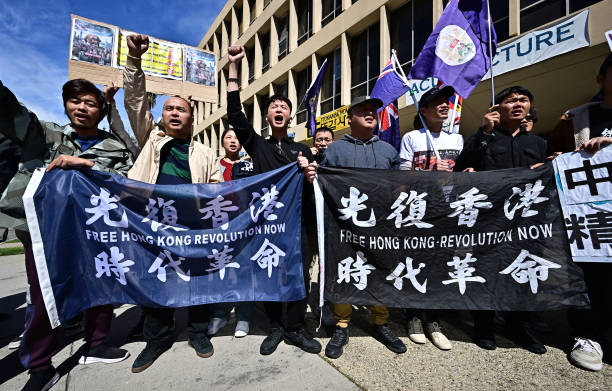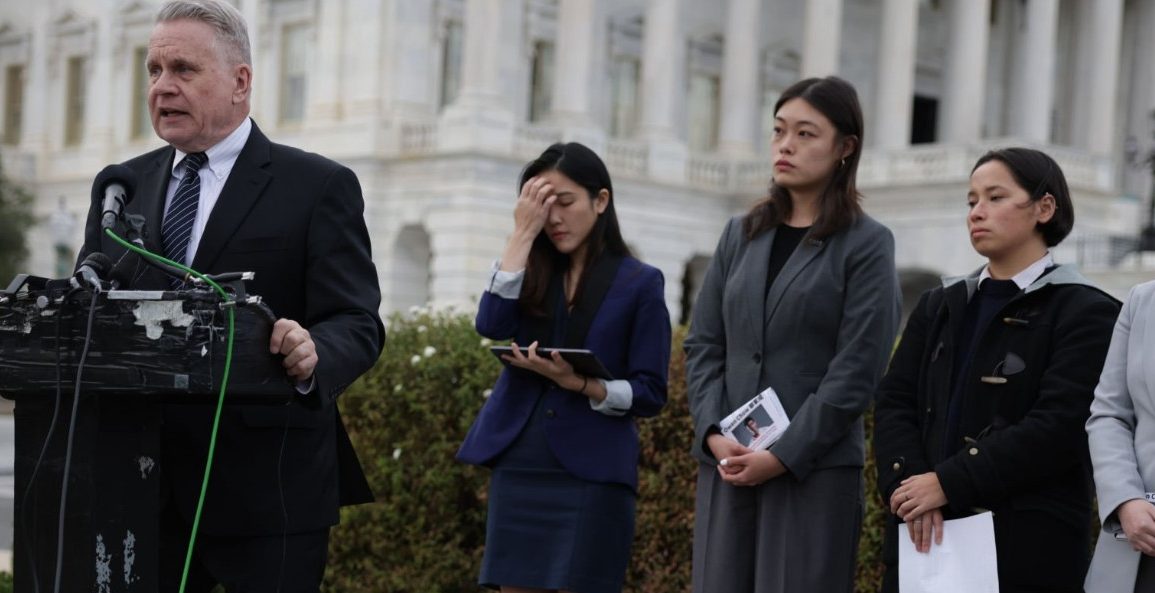The sentencing of 45 pro-democracy activists in Hong Kong has sparked widespread condemnation from governments and human rights groups.
Sentences ranging from four years to 10 years were handed down to activists, former legislators, academics, and councilors involved in the 2020 unofficial primary election.
The trial, considered the largest under Hong Kong’s National Security Law (NSL), has drawn criticism for its implications on civil liberties and political freedoms.
The activists, collectively known as the “Hong Kong 47,” were charged under the NSL, imposed by Beijing following pro-democracy protests in 2019.
Benny Tai, an academic accused of orchestrating the primaries, received the longest sentence of 10 years. Joshua Wong, a prominent figure in Hong Kong’s democracy movement, was sentenced to four years and eight months.
Wong reportedly declared “I love Hong Kong” as he exited the courtroom.

The trial has faced accusations of being politically motivated.
The three-judge panel, appointed by the government and operating without a jury, convicted participants for what critics describe as legitimate political activities.
Human Rights Watch described the case as indicative of the rapid erosion of civil liberties in Hong Kong. Chris Patten, Hong Kong’s last British governor, labeled the proceedings a “sham.”
Western governments, including the U.S., U.K., and Australia, denounced the sentences. U.S. officials criticized the prosecution as an attack on political dissent.
While the U.K.’s Indo-Pacific minister, Catherine West, condemned it as a suppression of fundamental freedoms. Australia expressed concerns about the sentencing of dual-national Gordon Ng.
While Beijing dismissed the criticism, framing the NSL as essential to safeguarding national security, others like former journalist Gwyneth Ho, sentenced to seven years, argued it marked a turning point in Hong Kong’s political decline.
In a social media post, Ho urged continued resistance against authoritarianism, asserting that “democracy is worth fighting for.”
This trial underscores deep tensions over the future of Hong Kong’s freedoms and governance under Beijing’s tightening grip.

